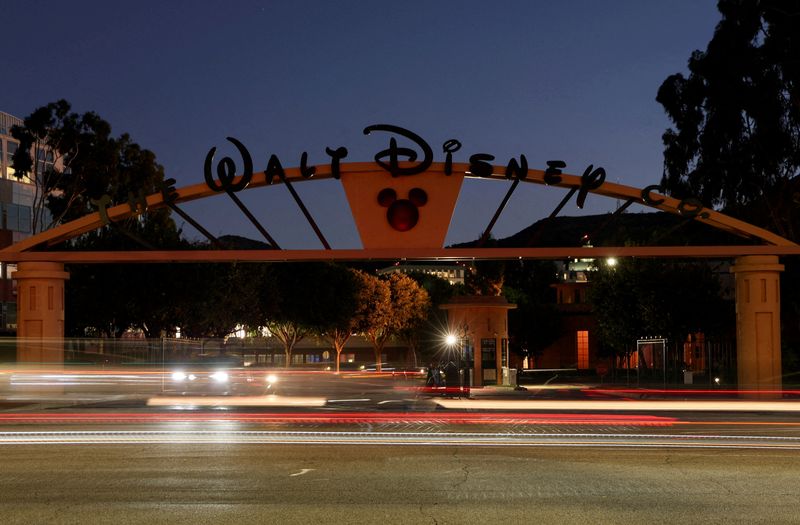By Dawn Chmielewski and Svea Herbst-Bayliss
NEW YORK (Reuters) - What do George Lucas, Jamie Dimon and the family of Walt Disney (NYSE:DIS) have in common?
The creator of "Star Wars," the billionaire Wall Street CEO and the descendants of Walt Disney's founders have thrown their support behind Chief Executive Bob Iger and the entertainment company's board nominees in a high-stakes fight.
All expressed faith in Iger's leadership and plans for reinvigorating the century-old company, implying shareholders should not let activist investors Nelson Peltz's Trian Fund Management or Blackwells Capital into the Disney castle.
The hedge funds say Disney lost its creative spark, bungled succession planing and was slow to embrace new technology.
They are seeking board seats to fix the perceived problems.
The Disney backers have created a string of public endorsements rarely seen in proxy fights that corporate governance experts, investors and bankers are calling noteworthy, savvy and timely.
"Endorsements on either side of a proxy fight — for the company or the activist — encourage other shareholders to take a closer look at the personal, financial, or commercial ties behind that support," said Jessica McDougall, a partner and chair of corporate governance and shareholder engagement at Longacre Square (NYSE:SQ) Partners.
For example, Disney has paid the company headed by Dimon, JPMorgan Chase (NYSE:JPM), more than $160 million in fees since 2014, according to LSEG data, making it the highest amount of fees paid by Disney to any investment bank in that period. JP Morgan is currently working with Disney to defend against the hedge funds.
Last month, eight grandchildren of Walt and Roy Disney, including Abigail Disney, who spoke out about Iger's pay years ago, united to support the CEO and keep the activists at bay.
Retail investors, who hold 34% of Disney's stock, may be moved by Lucas' "faith and confidence in the power of Disney and Bob's track record of driving long-term value" after the director of "Star Wars" and "Indiana Jones" said he has already cast his votes for management.
One former Disney executive said Lucas and the Disney heirs sought to emphasize the importance of creativity and the company's rich history of compelling storytelling - an area in which Peltz lacks experience.
Large institutional shareholders, who have the greatest influence in proxy battles, are likely to be more attuned to the recommendation of influential proxy advisory firm Institutional Shareholder Services (ISS) which is expected later this week, sources said.
But even with institutional investors, the deep relationships between the company and people like Lucas and Dimon could resonate loudly this year, governance experts said.
ValueAct, another prominent hedge fund that had previously invested money for Disney's pension fund, endorsed Disney at a conference two weeks ago.
Investment firms, including mutual funds, are often reluctant to speak publicly about how they will vote in a proxy contest for fear of being perceived as working with activists.
On Monday, Glass Lewis, ISS's smaller rival, endorsed the Disney board. Experts reason that a dissident investor cannot win seats without support from Glass Lewis and ISS, and that the timing of Lucas' supportive words was not accidental.

In the run-up to the April 3 annual meeting, Disney executives and representatives of Trian and Blackwells are trying to win over investors at personal meetings and through virtual sessions. Peltz's schedule is so packed that he pulled out of speaking at a conference in New York later this week, the organizer said.
Peltz and Blackwells have not yet lined up the kind of splashy endorsements shared by Disney. But on Tuesday, Peltz's Trian invested in media, instead, in the form of a full-page ad in the New York Times encouraging shareholders to throw out two Disney directors.